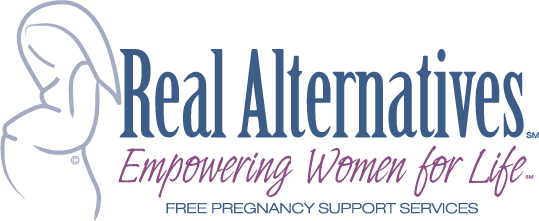Real Alternatives Response
to Final
BFO Audit Report of April 25, 2016
EXECUTIVE SUMMARY
Real Alternatives is very pleased that the Bureau of Financial Audit (BFO) has found Real Alternatives to be in “compliance with DHS grant agreements. Additionally, the BFO did not note any non-compliance with the Spiritual Counseling Guidelines at any of the five service providers we visited.”
Finding 1: Inappropriate Billings Were Identified at Service Providers
Real Alternatives takes very seriously its responsibility to be good stewards of taxpayer monies. That is why several months ago we conducted an extensive investigation of an alleged breach of contract with one of our vendors. The allegations of purposeful program rule violations led us to immediately suspend our contract with the vendor; withhold any further payments to the vendor; report to DHS what Real Alternatives found; and requested multiple times that an appropriate investigatory agency conduct a formal investigation into the matter.
Real Alternatives will continue to work wholeheartedly for the return of the taxpayer monies.
Finding 2: Enhancements to documentation requirements and claims processing
Real Alternatives developed its award winning statewide program administration system 20 years ago. (DPW) DHS approved the entire “first-of-its-kind method” used by Real Alternatives in regards to billing procedures, claims processing, internal controls, financial controls, and allowable program reimbursement. That method has been extensively audited 4 different times, resulting in perfect audits.
Although none of the suggested enhancements would have prevented the purposeful program rules violations in this instance, we will gladly also evaluate with DHS the need for the further enhancements recommended by the BFO auditors.
Finding 3: Service Provider Voluntary Contributions to Advance Life-affirming Work
Demand for Real Alternatives staff presentations about this “first-of-its kind” in the nation program by stakeholders and other states were not a reimbursable expense under the DHS Agreement. Cost and staff time for new follow-on contract proposals and negotiations with the Department were also not reimbursable. The need for cash reserves to operate the program was also apparent. Late monthly payments by DHS adversely affected cash flow for Real Alternatives, as did delays in passage of the annual budget.
In order to maintain a financial reserve for operations and to ensure scrupulous compliance with the DHS Agreement, Real Alternatives has additional voluntary private contracts with each of its 29 vendor service providers for the development and advancement of its life-affirming programs and mission.
Before implementing this additional agreement with the service providers, in discussions with the DHS Program Manager in May 1997, Real Alternatives was informed that administrators of other statewide DHS programs have done the same thing, and that “it is none of the department’s [DHS’s] business what other contracts you have with your service providers. What they do with their money after they earned it under the DHS Agreement is not our business.”
DHS approved Real Alternatives documents with the additional agreement language in them for FY 1997-1999 and FY 1999-2000. On four previous occasions, Commonwealth auditors viewed the additional agreement language and its payment by service providers, and found no issues.
Taxpayers are not subsidizing programs in others states. The service providers who have earned money by providing services to women in need have voluntarily agreed to help Real Alternatives scrupulously comply with the DPW/DHS agreement and advance the work of Real Alternatives throughout the nation. The service providers gladly contribute to this life-affirming work.
DETAILED RESPONSE TO BFO AUDIT
Finding 1 & 2 Response:
Real Alternatives is very pleased that the Bureau of Financial Audit (BFO) has found Real Alternatives to be “in compliance with DHS grant agreements. Additionally, the BFO did not note any non-compliance with the Spiritual Counseling Guidelines at any of the five service providers we visited.”
Real Alternatives takes very seriously its responsibility to be good stewards of taxpayer monies. That is why several months ago we conducted an extensive investigation of an alleged breach of contract with one of our vendors. The allegations of purposeful program rule violations led us to immediately suspend our contract with the vendor, withhold any further payments to the vendor and report to DHS what Real Alternatives found. Real Alternatives requested multiple times that an appropriate investigatory agency conduct a formal investigation into the matter. Real Alternatives will continue to work wholeheartedly for the return of the tax-payer monies.
Although none of the suggested enhancements would have prevented the alleged purposeful program rules violations in this instance, we will gladly also evaluate with DHS the need for further enhancements recommended by the BFO auditors.
Finding 3 Response:
The Department of Public Welfare (and now Department of Human Services) Agreement with Real Alternatives is a “direct charge” agreement. Eligible costs are submitted by Real Alternatives and reimbursed by the Department. There is no profit built into the agreement – all costs are actual.
Demand for staff presentations about this first-of-its kind in the nation program by stakeholders and other states were not a reimbursable expense under the DPW Agreement. Cost and staff time for new follow-on contract proposals and negotiations with the Department were also not reimbursable. The need for cash reserves to operate the program was also apparent. Late monthly payments by DPW adversely affected cash flow for Real Alternatives, as did delays in passage of the annual budget.
In order to maintain a financial reserve for operations and to ensure scrupulous compliance with the DPW Agreement, the Real Alternatives Board of Directors determined the need for additional non-program funding since the DPW Agreement did not pay for anything outside the tasks of the program. The idea to request a voluntary contribution from the service providers was legally researched and approved.
Though the voluntary contribution was outside the scope of the Department’s Agreement with Real Alternatives, the Real Alternatives Board directed staff to ensure that DPW knew about the voluntary contribution and its funding mechanism. DPW had no issues with it whatsoever. In fact, the DPW Program Manager notified us that other statewide administrators of DPW programs had done the same thing.
The DPW Program Manager reviewed the voluntary contribution language and its funding mechanism in May of 1997. The DPW Office of Social Programs, Bureau of Social Services Program Director specifically stated that “it is none of the department’s [DPW’s] business what other contracts you have with your service providers. What they do with their money after they earned it under the DPW Agreement is not our business.” This statement also confirmed the legal status of the language Real Alternatives had researched.
DPW approved the Real Alternatives documents with the voluntary contribution language in it for FY 1997-1999. In 1999, the Department again approved the voluntary contribution language in documents provided in our proposal for the follow-on contract for FY 1999-2000.
Commonwealth auditors have viewed the voluntary contribution language and its payment from service providers four times over the years. While understanding the legal arrangement and the DPW approval of the language in the Real Alternatives Service Provider Agreements, four different audit teams reviewed the contracts, service provider agreements, and invoices and found no issues. Due to the understanding that funds generated by the voluntary contribution language were Real Alternatives own funds, auditors never asked to audit the funds during these extensive audits. The audits were:
- FY 98/99 Program Contract Monitoring Audit by DPW Office of Social Programs, Bureau of Social Services
- FY 98/99 Program Audit by Commonwealth of PA, Office of the Budget, Public Health and Human Services, Comptroller Operations
- FY 99/00 Program Contract Monitoring Audit by DPW Office of Social Programs, Bureau of Social Service
- FY 00/03 Program Audit by Commonwealth of PA, Office of the Budget, Public Health and Human Services, Comptroller Operations (see resulting program recommendation by DPW Secretary)
From the beginning, Real Alternatives explained the importance of the voluntary contribution to service provider executive directors. They all agreed to the separate voluntary contribution language. As Service Provider Executive Directors have turned over, Real Alternatives explains the purpose of the voluntary contribution when asked. Counselors and Site Mangers of Service Providers the BFO Auditors interviewed however, would not necessarily be privy to those conversations.
DPW’s review and approval of the voluntary contribution language as well as the legal understanding of it was the result of the “fee-for-service” relationship Real Alternatives has with its service providers. The following is the legal description of the voluntary contribution language operation:
- The “fee-for-service” is earned once counseling services are provided by the service provider counselors to the clients. After the counseling session, the counselor invoices Real Alternatives. When each invoice is submitted, there is a completed transaction. Once invoiced, Real Alternatives is legally obligated by contract with each service provider to pay for the service provided. Once earned, it is the service provider’s money. From a purely legal perspective, this fee-for-service payment is no different than services provided to Real Alternatives by its employees, consultants, phone company, electric company, or other vendors, etc. It is neither Real Alternatives’ nor the Commonwealth’s business what vendors, staff or service providers do with the funds they earned.
- Service Provider invoices are processed weekly for accuracy and compiled monthly for payment. Service providers are paid the amount listed in the Real Alternatives agreement with DHS. The full charge of those services as agreed to in the Real Alternatives agreement with DHS is submitted for payment to DHS. Once, DHS reimburses Real Alternatives, Real Alternatives reimburses the service providers the full amount described in the DHS Real Alternatives agreement.
- A second, private and voluntary agreement provides funds to Real Alternatives for work described earlier. That second agreement allows for the monthly voluntary contribution payment to be taken out of the monthly reimbursement of the first agreement.
- The payment procedure described above is simply for the convenience of RA and the service providers as it eliminates the increase administrative costs and time for both RA and the service providers that would be incurred by the exchanging of bank checks between the parties.
Pennsylvanians are not subsidizing RA programs in other states at all – the service providers who have earned money by providing service to women in need have voluntarily agreed to help Real Alternatives scrupulously comply with the DPW/DHS agreement and advance the work of Real Alternatives throughout the nation. The service providers gladly contribute to this life-affirming work.


